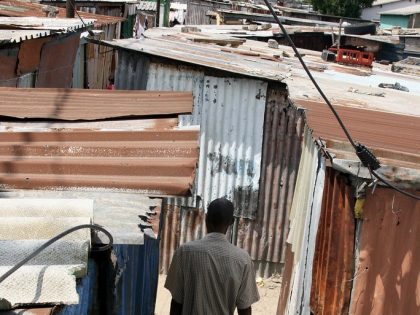
119 Articles by:
William Shoki
William Shoki is editor of Africa Is a Country. He is based in Cape Town.


Coming to America?
In the shadow of the US election, this Tuesday on AIAC Talk, we talk African immigration to the United States with Abraham Zere and Aya Saed.

End Police Brutality in Nigeria NOW!
This week: #EndSars in Nigeria with Sa’eed Husaini and Annie Olaloku-Teriba. Stream live Tuesdays on Youtube, Facebook, Twitter. Subscribe to our Patreon for the podcast archive.

The emptiness of anti-corruption politics
This week on AIAC: Wangui Kimari and Benjamin Fogel on the politics of anti-corruption, and then the particular case of Tanzania with Sabatho Nyamsenda and Elisa Greco. Subscribe to our Patreon for the podcast archive.

A city on a hill
The viral sensation “Jerusalema” and its dance challenge reveals a deeper longing and desire to re-imagine the world.

Nkrumah’s legacy
This week on our livestream show, we focus on the legacy of Kwame Nkrumah. Stream it live Tuesdays on Youtube, Facebook, Twitter. Subscribe to our Patreon for the podcast archive.

The culture wars are a distraction
When our political parties only have recourse to the realm of identity and culture, it is a smokescreen for their lack of political legitimacy and programmatic content. It is cynically unpolitical, and it’s all bullshit.

To fight unemployment we have to fight capitalism
Three activists from the Assembly of the Unemployed talk to us about the challenges facing working-class communities in South Africa.

The existing order of things
As the South African ruling class wages a protracted war against the poor and working class, it grows comfortable with the idea that people have more or less accepted the status quo.

The class character of police violence
Police violence and the murder of black people in the United States have provoked outrage and protest around the world, including on the continent. But, why is there so little outrage over police violence in African countries?

Masks off
The revival of an elite technocratic rationality is starting to undo South Africa’s lockdown, now in its second month.

How to steal a country
Rehad Desai’s film celebrates the investigative journalists who expose the corruption of Zuma’s regime in South Africa, comes with a depressing note: To date, no one has gone to jail.

Out of sight
In South Africa, social distancing to bring down COVID-19 infections takes a decidedly local shape. In a racialized society, it manifests primarily as white melancholia and black Afro-pessimism.

What lies ahead?
The coronavirus pandemic places moral, economic, and political questions before us. Only two answers remain: socialism or barbarism.

A ditch to climb
In South Africa, the political class use foreign nationals as scapegoats to obfuscate their role in reproducing inequality. But immigrants are part of the excluded.

Roti and roses
Will Shoki sits down with Ugandan-born rapper and housing advocate Zohran Mamdani about his bid to represent Queens in the New York State Assembly.